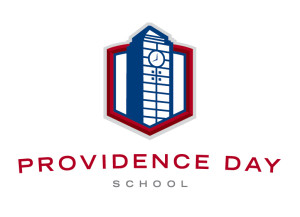By Sam Caudill, Head of Middle School at Providence Day School
Somewhere between the ABCs of Lower School and the SATs of Upper School, there lies an exciting and dynamic world of Middle School.
Middle school provides many growing opportunities for students in grades six, seven, and eight. I have often commented to parents that students arrive in sixth grade with stuffed animals and leave in the eighth grade preparing for driver’s education. At no other point during a child’s education does more change take place than during the middle school years.
Not only is it a time for great change for our students, but it is also time for new challenges for parents. Dr. Rob Evans, author of “Family Matters, How Schools Cope with the Crisis in Child Rearing,” and past speaker to both Providence Day parents and faculty, has shared valuable insight on the challenging role of parents in today’s world and the impact on children.
While students often look forward to the start of middle school as they begin to experience more independence, parents may look at this transition time as one in which they feel they have less control over their child’s decisions. Many middle school experts and writers, including Dr. Evans, have referred to a term that best describes the middle school years as a period of “roots and wings.”
Parents have more control prior to the middle school years monitoring and directing their child’s interests, friends, and activities. While middle school children rely greatly on the care, love, and guidance of parents, they do begin to make more decisions independently. No two students experience the same rate or pace of growth.
Middle school students begin to gain individual identity, even though it seems that all middle school students want to be a part of some group. Parents often worry if their child is not in a particular group (sports, social, etc.), then there must be something wrong. But students are moving to find self-identity and discover those activities they like and in which they feel successful.
Dr. Evans described three important characteristics that contribute to the “roots and wings” theory. He describes them as “nurture, structure, and latitude.” All are very important to the healthy life of children, especially middle school children.
Our middle school makes every effort to support parents in developing and promoting these characteristics. A safe environment, a caring and committed faculty and staff, and a strong middle school program — both academically and in extracurricular activities — are vital to their growth. Students expect boundaries during these years, and they also benefit from learning to make choices with directions and support.
The middle school years allow for students to have a bruise that may come from a decision, but the bruise does disappear, and students learn a valuable lesson about choices. Students learn quickly about the high expectations in our middle school. Consistency in promoting and enforcing these expectations is needed, and our students expect that as a part of our work with them. Hopefully, students understand that their own personal decisions are valuable in not only their individual growth, but in their interaction with other students and adults.
While the world of middle school often brings ups and downs, strong communication between the school and parents can be very beneficial to a child’s growth and success. Parents often must develop a different management mode, moving from control of their children’s activities to allowing children to make some decisions and learn from those choices. This will help give students a safe environment in which to develop “wings.”
I am always proud of the good communication that takes place between our middle school staff and parents. All would agree the world is different, families are different, and schools are different, but our goal always is to provide support, advice, and encouragement to our middle school parents.
Harry Finks, author of “The Middle School Handbook,” suggests these ideas for parents trying to find ways to help their middle school children.
-Choose your issues, your conflicts, and your battles
-Applaud a lot of things
-Don’t measure your child in strictly academic terms
-Parents need “peer support” just as much as children do
-Treasure children’s ability to talk with and communicate comfortably with other adults
-Learn all that you can about the developmental aspects of this age group
-Enjoy your child
The role of enjoying your child is very important to each parent and family. Support, encourage, and nurture your child in his/her efforts. Children may not always be right, and they may not always make the best decisions, but it is appropriate to let them try and fail.
The middle school years are the time to build self- confidence and self-esteem through their work, sometimes good and maybe sometimes not so good. Be honest with them in your conversations. They understand when this happens and when it does not.
Enjoy these years of your child’s growth and development. It passes quickly. Many of the lessons learned during the middle school can often set the direction for a lifetime. Parents play a huge role in helping children set that direction.
Best of luck as you embark on what can be the greatest three years of a child’s life.
Sam Caudill is the Head of Middle School at Providence Day. In addition to administrative roles, he has been a teacher in both public and independent schools in Charlotte. His work with middle school students and parents has covered 48 years and spanned parts of six decades. Sam holds a Bachelor’s from Austin Peay State University and a Master’s from Wingate University. He is retiring from Providence Day at the conclusion of the 2015-2016 school year.
![]()
Providence Day School
5800 Sardis Road
Charlotte, NC 28270
(704) 887-6000
website
facebook
twitter: @ProvidenceDay



